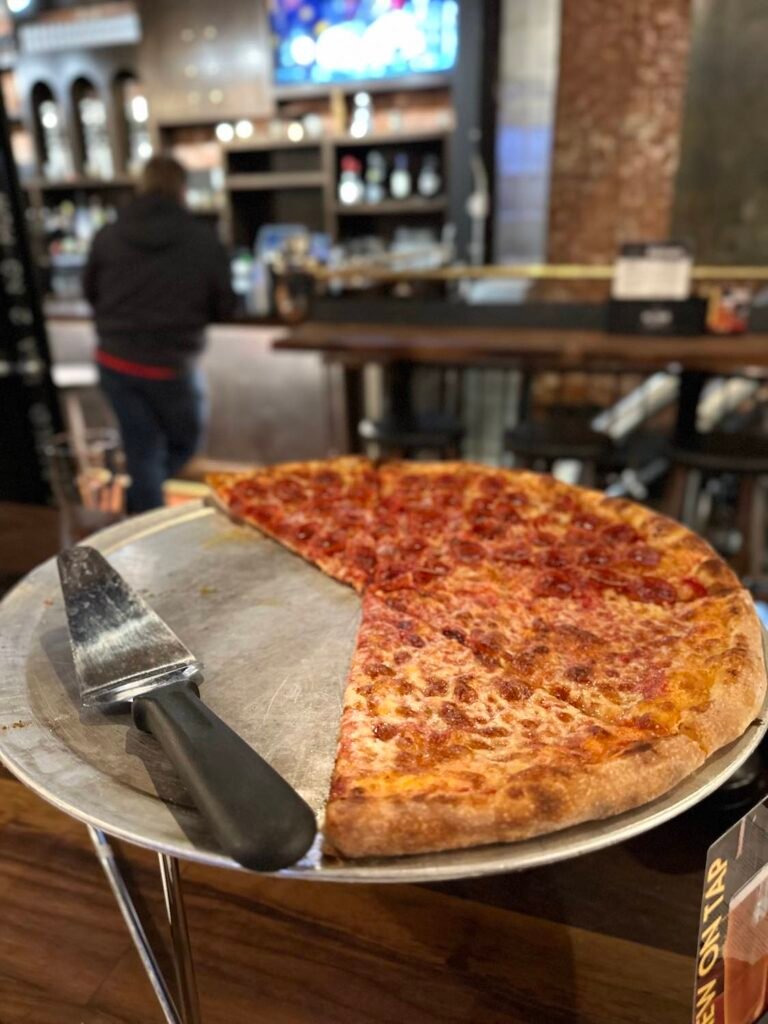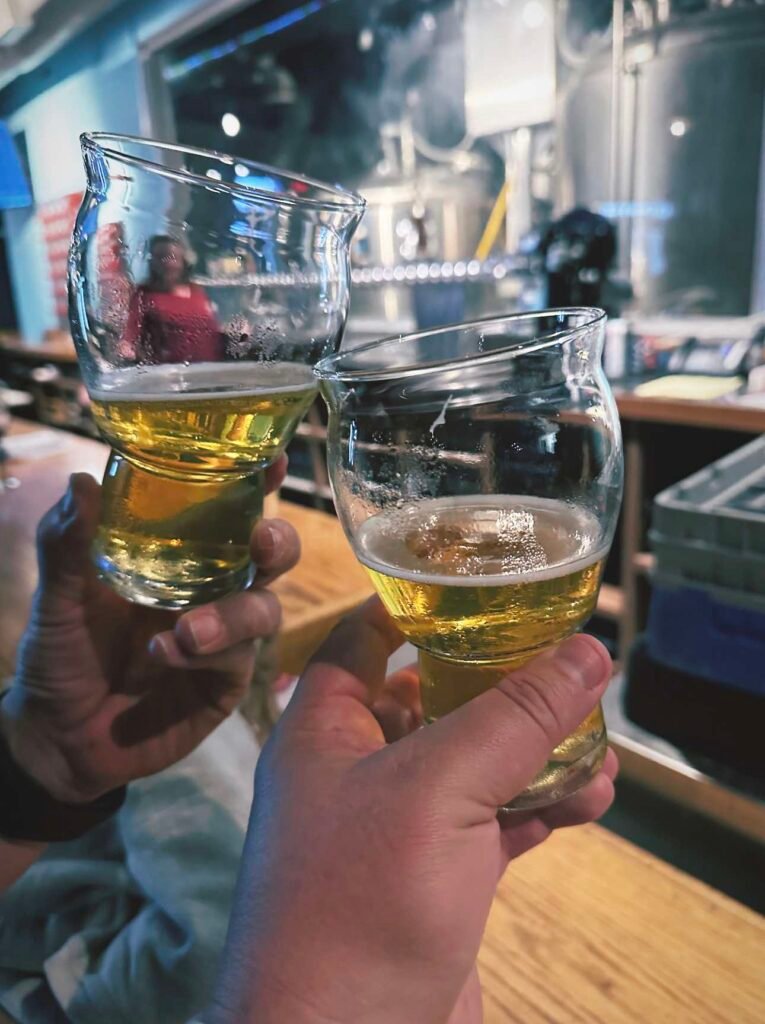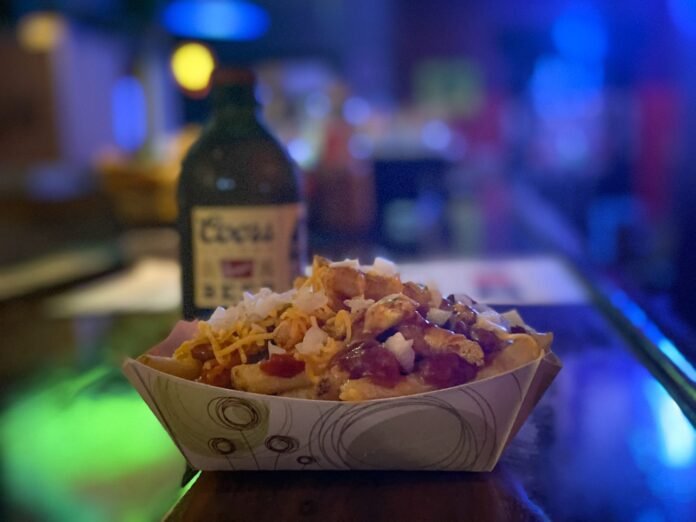Long Beach restaurants have long struggled with maintaining late hours, both pre- and post-COVID—and in a huge sense, it’s the snake that eats itself: People consistently claim that they want places open later so a handful do but don’t receive the patronage because it is presumed that, well, no one is open late. Hence the vicious circle.
“We can stop the feeling that everyone thinks Long Beach is a sleepy city with not much to eat or drink or do after 9PM—it shouldn’t be that way in a city as large, diverse, and hip as ours,” said Sura Korean BBQ & Tofu House co-owner Brandon Su.
But a handful of restaurants are starting to test the waters with later hours, harkening to the days when 24-hour diners like The Shore House in Belmont Shore outshone cheap corporate tricks like Denny’s. The only thing is that we, as patrons, need to not only stay up with them but actually go to them.
Long Beach restaurants want to be open late—they just need the support
There used to be late night hubs in nearly every Long Beach neighborhood, but particularly post-pandemic, many if not all have scaled back, even in restaurant rich neighborhoods like Alamitos Beach, Belmont Shore, DTLB…
Some are taking the risk to change that.
When it comes to Korean culture and food, late nights are an essential cog: Koreatown in Los Angeles hosts a variety of straight-up 24-hour restaurants to feed the crowd of the bars that come with post-2AM inebriation and hunger. So it would make sense that Sura, the steward of Korean cuisine in Long Beach, would do the same. And owners Claire Kim and Brandon Su want to—but it’s been a rough as well as healthy experiment.
“We kind of switched back to normal hours after experimenting,” Kim said. “Like, we tried midnights for a month but it wasn’t worth the dead labor period at the end of the night. We ended up not making money past 10PM.”
They did, however, extend their hours on Thursdays to 11PM and Fridays and Saturdays to 11:30PM. The result? A bit more happiness amongst customers.

“So far, people love getting a little more soju and tofu soups at the later hours on the weekends,” Kim said. “But it’s definitely still a struggle to attract the late night crowd despite offering what we feel is a diverse and fairly priced drinking and sit-down dining experience.”
They aren’t the only ones struggling with maintaining late night crowds but wanting to do more: The Ordinarie, which once had its kitchen open until 2AM, has scaled back on late night food only to revamp it in the coming weeks—but it remains open until 12:30AM every day of the week. Their surrounding neighbors—ISM Brewing and Michael’s Downtown—have collectively agreed to expand hours, including late operations. Altar Society on Pine Avenue wants to offer something different from the clubs. Te-Buru and Ramen Hub in Bixby Knolls have begun testing late night hours in the hopes the sleepy neighborhood won’t be a 9-to-5 place.
It is not just Long Beach restaurants searching for change; bars, breweries, and brewpubs all want expanded hours
Sideburns—the sister kitchen to 4th Street bar staple The Stache—has some of the latest nights in the city since opening in 2019: midnight Sunday through Thursday and 1AM on Fridays and Saturdays, with the largest portion of their patronage attached to the Stache.
Owner Brett Gallo understands not everyone has this serendipitous pairing—a full service restaurant directly connected to a full-on bar—but still feels there is not only room for potential collaborations between restaurants and bars but that late-night food is an important cog to the city’s social culture.
“I believe having late night food offered in Long Beach is important—and especially in bars because it levels people out and creates a much more enjoyable environment. It’s really that simple,” Gallo said. “Before we opened Stache, the late night crowd definitely had a different vibe and energy when we only offered them cocktails and beer. Now a lot of customers finish the night off with a locally famous smash burger, maybe have one more topper, and go to bed.”

Brewpubs are also understanding this, especially ISM Brewing and Altar Society, our newest additions to the brewpub history of Long Beach that stretches back to Belmont Brewing Company, which birthed the brewpub regionally.
“For Downtown, we are all holding on to ge people and customers back the neighborhood—not just during the daytime but late night,” Altar Society co-owner Jon Sweeney said. “Late night food service plays a very big part of any flourishing district in any given downtown. At Altar, we have a late night pizza deal whereby an hour before we close and the kitchen shuts down, we sell our remaining pizza slices for two bucks a slice until sold out.”
These offerings—whether it is taking on what will eventually be tossed anyways or trying to combine nearby kitchens with bars—isn’t relegated to what’s directly connected to a space but also by what surrounds it: ISM Brewing Ian McCall called on surrounding Promenade restaurateurs to join in a collective We’ll Stay Open campaign where they are no longer closed on Mondays and plan on expanding hours.
“I am a firm believer in maintaining consistency in our hours so our community knows what to expect from us,” McCall said. “That is why I decided to open 7 days a week. I don’t ever want you to show up with a desire for a beer or sandwich and not be able to get it. The ultimate goal behind consistency of hours across our Promenade businesses, in particular ISM Brewing, The Ordinarie and Michael’s Downtown, is to announce to the community, “We are here for you, for your family lunch or dinner, special event, or just for a drink when you want.”

But whether it is a bar or brewpub or a restaurant, people need to know if the space offers food—and that falls on the business because Long Beach, as this whole article emphasizes, is infamous for shuttering food at 9PM.
“Also, part of the problem too is that people don’t always know if a kitchen is still serving,” Gallo continued. “Businesses need to do a better job of posting kitchen hours for the week on their social media or something. It will also draw people in.”
Late night food is an essential cog for healthy urbanism—but businesses have to create environments patrons want to go to
It goes beyond just catering to the revelers; late night food options are both good for business and good for the souls of residents: It lets them know they can actually depend on their city for certain needs—and hunger, no matter when it arises, is clutch for that to happen.
And, from an urbanist angle, late night food encourages crowds of all hours and therefore a presence at all hours, leading to more foot traffic, more presence, and more safety.
“Late night food is especially important in sustaining the life of our corridors like the Promenade in Downtown,” McCall said. “Every hour our businesses are empty or llosed is another opportunity for those outside our community to expand the narrative about Long Beach somehow being somehow more screwed up than other urban centers.”

And for McCall and others, creating a vibrant, inclusive, and diverse late night food center—”At least Thursday through Saturday,” he notes—will support in justifying a greater foot traffic presence and increase in safety, allowing visitors to experience a greater Long Beach.
“Other communities have embraced late night food options and have benefitted financially from it on top of it all,” McCall said. “It’s a win-win to me. But we need the support. I would love to keep our kitchen open later each night of the week. However, when the people aren’t showing up, it doesn’t make financial sense to keep paying for labor. Without hard alcohol/cocktails, we just don’t get the after 10pm draw on the regular. We have begun discussing a late night menu option, but we will hold off on releasing it until the community shows us they are ready for it.”
Perhaps it is Sweeney who makes one of the most brutally honest points: When it comes to the consumer angle, many of us are rightfully tight with our money because our money is systematically tight.
“As a consumer, we all work really hard for our money,” Sweeney said. “In the present environment, with the high cost of living and inflation and and and: money just doesn’t go as far and that impacts our spending habits. Operators can’t become mediocre—and personally there is lots of mediocracy out there.
“As an operator, it’s my sole responsibility to make sure that a customer coming through the door has an amazing experience. From the service and the food to the ambiance and atmosphere. You can’t fail on any of those fronts—and it’s easier said than done.”


